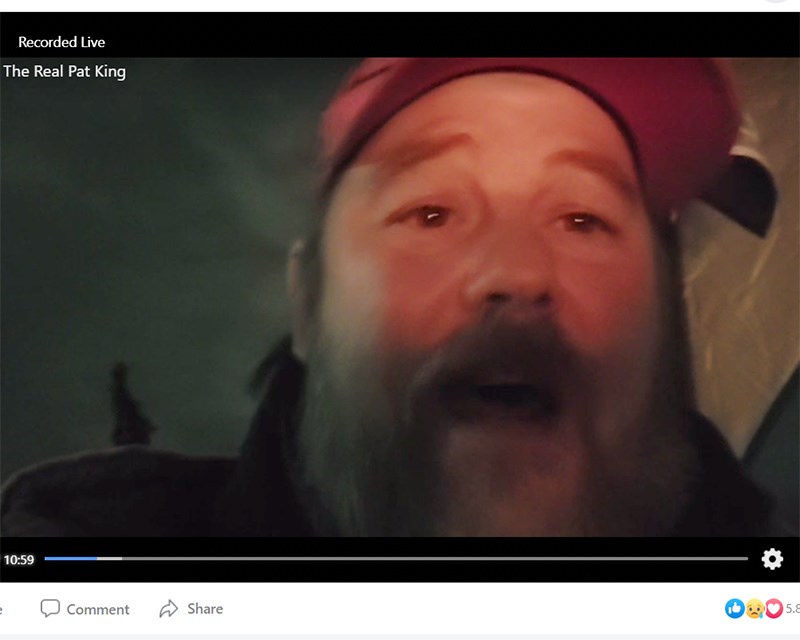BLACK LAKE FIRST NATION – In a release issued Monday, Chief and Council of Black Lake First Nation strongly refute statements made in what they termed a "negligent" and "careless Facebook video posted by The Real Pat King.”
In a release distributed by the Federation of Sovereign Indigenous Nations, the council stated forced vaccination is not a part of the Black Lake First Nation COVID-19 strategy.
“Black Lake First Nation strongly supports the personal choice and freedom to choose to be vaccinated or remain unvaccinated.”
Interest in the video has posed a challenge on the band's resources, In its release, the council said, “At this time, we would like to request concerned citizens to refrain from contacting the band in regards to this video. It is exhausting our resources. We thank and appreciate all concerned citizens for the well-being of our community.”
The video the First Nation has decried a The Real Pat King Facebook live video recorded on Sunday, Oct. 17. It is a little under 11 minutes long. Based on the post, the video was posted about 8 p.m. One of the speakers states they are at the Edmonton Legislature grounds.
The first of two female speakers introduced by the host states that women and children in Black Lake First Nation are being forced to take the “jab,” indicating the vaccine to protect against COVID-19.
The release states, “She shares that she has been speaking with someone in Black Lake First Nation and they have told her the women and children in Black Lake First Nation are running into the bush to hide from and avoid authorities who are forcing the vaccination on them. The second female speaker said her sister from Black Lake First Nation, has told her she and her children are hiding in the bush to avoid the forced vaccination.”
The band stresses that The Real Pat King failed to authenticate the portrayal of Black Lake First Nation, Saskatchewan vaccination efforts.
“These statements are not true,” said the band's release, adding “The video is not representative of the vaccination efforts in Black Lake First Nation, Saskatchewan.”





